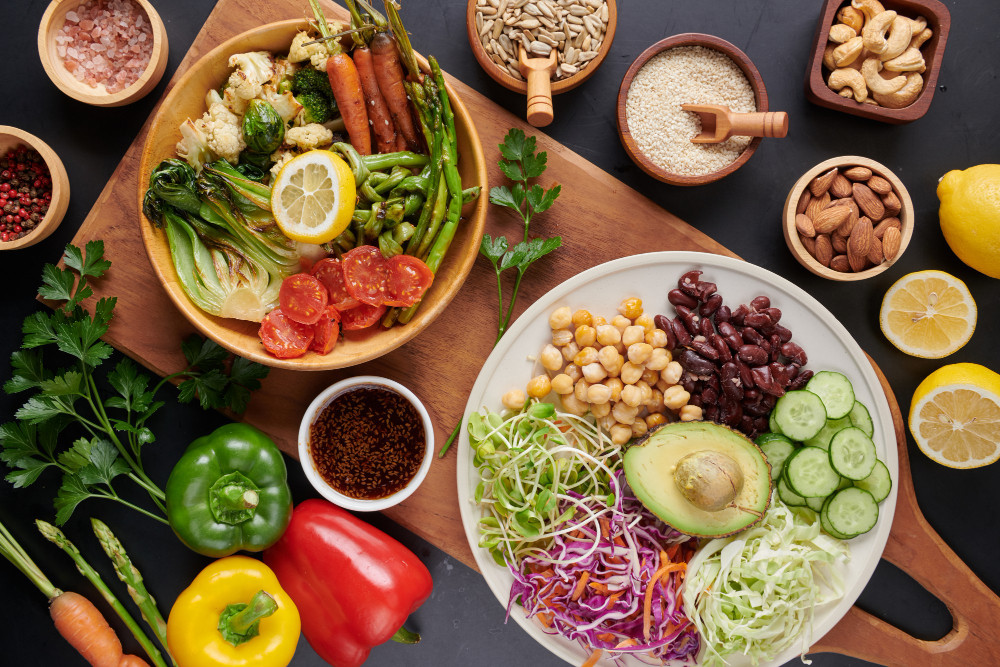For a long time, the concept that more calories must be burned than consumed has been the foundation of weight loss efforts. This concept is known as a calorie deficit. A calorie deficit occurs when you burn more calories through physical activity and bodily functions than you consume through food and drink.
Before a calorie deficit influences your daily food, nutrition, and weight management decisions, you should first understand the myths and facts about calories. Understanding this allows you to make healthier food choices, better manage your weight, and meet your nutritional requirements more effectively.
Important facts about calories
Not all calories are equal
It is crucial to understand that different sources of calories provide different benefits to the body. For example, vegetables are low in calories but high in fiber, vitamins, and minerals essential for health.
Protein is an excellent source of calories because it repairs tissues, builds muscles, and keeps the body feeling fuller for longer. Although protein is high in calories, consuming enough protein can help reduce the urge to overeat.
Healthy fats, such as omega-3 and monounsaturated fatty acids, are high in calories. They also provide consistent energy, improve brain function, and reduce inflammation in the body.
Nutritional labels may not always be accurate
We frequently rely on nutrition labels to determine calories. In fact, nutrition labels on food packaging often provide varying estimates.
The process of measuring nutritional values is not always consistent, nor is the food production process, which impacts nutritional values. Differences in ingredients, as well as storage and processing after measurement, all affect the nutritional values listed on labels.
Reducing calories does not always result in weight loss
Weight loss is not always associated with a decrease in calorie intake. When you reduce calories, your body can compensate by slowing its metabolism. This may hinder weight loss and lead to weight stagnation. As you try to lose weight, your body composition also changes. Loss of muscle or water retention can make weight loss less significant, even if calories are reduced.
Artificial sweetener content
Some products claimed to be low in calories often contain artificial sweeteners. The long-term use of artificial sweeteners is still debated to this day.
Some studies show negative effects from consuming artificial sweeteners, but there has been no definitive conclusion from these studies. Nevertheless, artificial sweeteners should be consumed in moderation, and you should prioritize more natural, fresh, and minimally processed foods.
Everyone has different caloric requirements
Everyone's calorie needs differ depending on age, gender, body composition, physical activity level, and body metabolism. As a result, when creating a calorie deficit plan, you cannot compare the number of calories you cut with someone else's. In this case, you should consult with a nutritionist or doctor to determine the proper calorie intake for your condition.
Cutting calories drastically can be harmful for your health
Excessive calorie restriction can have a negative impact on your health. When the body does not receive enough calories to support basic functions, metabolism slows down in order to conserve energy. This makes weight loss more difficult and fat accumulation easier.
It is important to consult with a doctor or nutritionist regarding your daily calorie intake, especially if you are trying to lose or gain weight. If you need medical advice or consultation, you can either visit a doctor or make use of the consultation features that are available in the Ai Care application by downloading the Ai Care application from the App Store or Play Store.
Looking for more information about nutrition, food and other diet tips? Click here!
- Sean Edbert Lim, MBBS
Joy Manning (2023). The 7 Biggest Myths About Calories. Available from: https://www.everydayhealth.com/diet-nutrition/biggest-myths-about-calories/
Nicole M. Lamarco (2022). What Is a Calorie?. Available from: https://www.verywellfit.com/what-is-a-calorie-and-why-should-i-care-3496238
Kris Gunnars, BSc (2023). 6 Reasons Why a Calorie Is Not a Calorie. Available from: https://www.healthline.com/nutrition/6-reasons-why-a-calorie-is-not-a-calorie
Malia Frey, MA, ACE-CHC, CPT (2021). 5 Factors That Affect Calorie Count Accuracy. Available from: https://www.verywellfit.com/the-number-not-to-trust-on-the-nutrition-label-3495626
Harvard Medical School (2020). Stop counting calories. Available from: https://www.health.harvard.edu/staying-healthy/stop-counting-calories
Harvard TH Chan (2023). Low-Calorie Sweeteners. Available from: https://www.hsph.harvard.edu/nutritionsource/healthy-drinks/artificial-sweeteners/
Malia Frey, MA, ACE-CHC, CPT (2022). How Many Calories Should I Eat Per Day?. Available from: https://www.verywellfit.com/how-many-calories-to-lose-weight-3495659
Sarah Garone (2023). A Low-Calorie Diet for Weight Loss: How Low Is Too Low?. Available from: https://www.everydayhealth.com/weight/can-more-calories-equal-more-weight-loss.aspx











